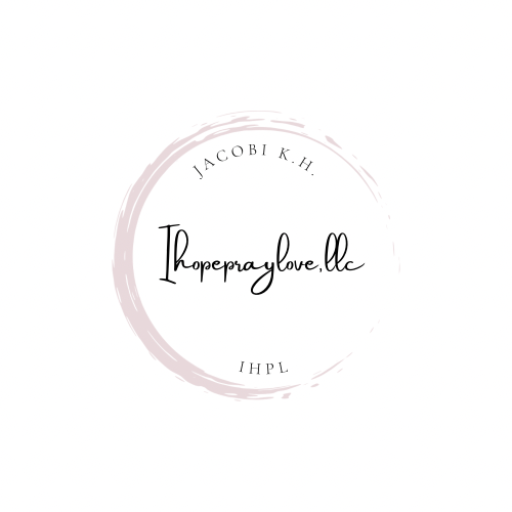
When human relationships are healthy, they can be one of the most valuable, meaningful, and satisfying human experiences.
What are the critical elements of a healthy relationship with others and yourself? When people are unaware of these elements, they can unconsciously destroy their relationships. On the other hand, they can build strong and fruitful relationships when they practice them.
Similar to a house, a solid relational connection needs a range of specific elements, or it can become insecure, unhealthy, and vulnerable to disaster.
The foundation of a healthy relationship is to practice :
- love
- honor
- self -control
- responsibility
- truth
- faith
- vision
These seven pillars are for both yourself and others.
Practicing these seven pillars builds unconditional acceptance, which is difficult for many people today, as a scoreboard can be found in most relationships. Sadly, on the other end, they have no boundaries.
Unconditional acceptance lets people be who they are in a relationship without judgment, rejection, manipulation, or control. This foundation supports each element that constructs a healthy relationship.
Pillar of Love

The pillar of love is unconditional by nature. Love recognizes that no one is perfect and acknowledges this in its entirety.
It states: I care about and value you–all of you: body, mind, spirit, connections, values, and dreams. When you demonstrate care and understanding in many ways and many situations, as a result, the person feels loved! They feel safe, valued, secure, nourished, and understood.
To give love to others, you must show love for yourself first, which means you understand who you are and keep away from hostile environments and people.
Pillar of Honor

Honor/respect are terms that are commonly misused and abused, mainly when it concerns relationships.
Many people see honor as something that should be expected, “You must honor me.” But, in reality, you can’t expect it; it’s either given or not.
I may not like another person’s actions, attitudes, or behavior at times, but I can still choose to respect another person through how I conduct myself. Respect is both given and received. Every individual in society is worthy of consideration. We show respect by listening, speaking kindly, and abiding.
Honor allows us to keep high levels of value and faith in people as we do ourselves. This even goes for when they fail, make mistakes, and express their uniqueness.
Pillar of Self-Control

Self-control is essential to emotional maturity and self-development.
Self-control means you can set goals and execute them to achieve them.
Self-control in relationships means that you can overcome negative impulses and communicate with your partner or friend in a healthy way instead of either running away (ghosting) or becoming angry. Sometimes, the best exercise we can give our self-control is choosing to love someone, even when we no longer feel like loving them.
Love is the choice applied through self-control, removing the option of blaming others for our choices. Self-control is a core feature of maturity and responsibility. In any relationship, when two people consistently demonstrate to one another that they can control their emotions and behaviors, they prove they are worthy of trust. It is often a significant factor in our overall level of satisfaction. In a nutshell, self-control means healthily expressing our emotions. It doesn’t mean shutting down feelings.
Pillar of Responsibility

The word ‘responsibility’ means ‘the ability to respond.’ A response is the opposite of a reaction. A responsible individual will act without guidance or input from other people. A responsible individual will face any situation and make powerful choices that are consistent with whom they say they are. They refuse to escape difficulties or any part of another’s life they dislike.
Responsible people follow through on obligations, for better, for worse, in sickness and health. Personal responsibility is a sign of a mature character and creates trust. It is the willingness to face any circumstance and make wise choices congruent with who you are. Responsibility does not run away from problems, challenges, or relationships when the going gets tough.
When you take full ownership of your life in this way, you gain confidence. However, ensure you don’t take unrealistic responsibility (too much or too little).
Pillar of Truth

Emotionally mature people are dedicated to telling the truth. It is the foundation for a fair and just relationship. Being truthful means we can grow and mature, learning from our mistakes.
Trust is earned by telling the truth about ourselves, and showing our insecurities.
Each time you tell your truth, Hu uyou give helpful information to make a better decision about whether others want (or don’t want) to spend more time with you. This way, you will lose many people, but those who stick around will genuinely like who you are. This is the only way to establish deep and meaningful relationships. Trust is earned over time.
You also must know to whom you are talking to, and control how much truth you share. Telling the truth to the wrong people can also turn against you. It is essential to live and act in line with your values. Being truthful to yourself matters because you cannot live in line with your values if you pretend to yourself that you are something else. Truthfulness allows you to be honest about yourself and others and live a life that reflects that.
Pillar of Faith

The pillar of faith/trust is erected in a relationship when two people consistently demonstrate commitment to being honest and telling the truth. Believing in God can also enhance your relationships. Knowing that you have worth in God’s eyes lifts your self-esteem. When you don’t look to others to validate and accept you, you are free to love and appreciate others.
Loving yourself can be challenging, but having faith in yourself can make it a little easier. As your confidence increases, so do your ability to connect meaningfully with others. The result of faith in a relationship is that both people can be themselves (and 100% honest) when moving forward toward their relational goals.
Believing that others have worth in God’s eyes has the potential to improve your relationship with them. It is easier to treat someone kindly and trust them when you recognize their true worth. Trust in another person will only grow alongside experiencing consistent unconditional acceptance, love, truth, honesty, and honor.
Pillar of Vision

Wise people proactively create daily routines and relationships that reinforce their future vision and remind them of who they are. When two people build the pillar of vision into their relationship, they share the knowledge of one another’s passions, identity, and future goals. Your relationship Vision brings purpose and direction to your relationship. Think of your relationship Vision as the overarching long-distance vision you aspire to create.
Shared vision promotes mutual accountability so that when challenges and problems arise, the pillar of vision helps to get through them together. Relationship Vision also defines how you’re contributing your uniqueness. It is essential to be honest with ourselves and others when our values and vision change. A shared vision can turn into two completely different concepts where two individuals equally support each other’s vision and dreams.



0 Comments